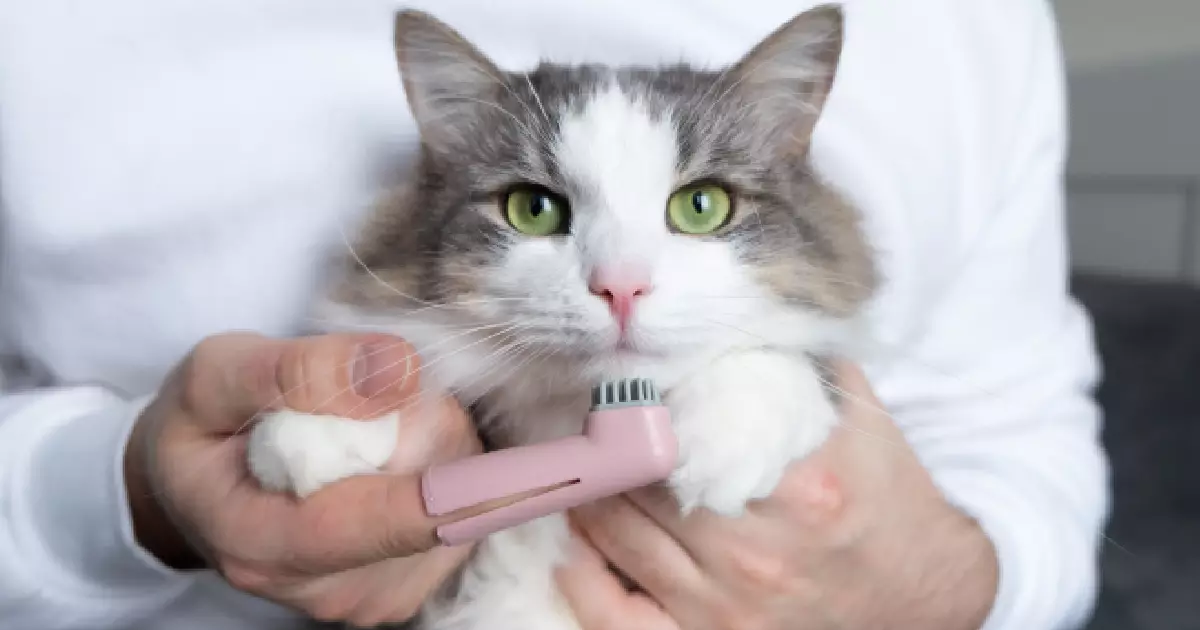February, recognized as Pet Dental Care Month, serves as an essential reminder for pet owners to focus on their cats’ dental health. Just like in humans, maintaining a proper dental hygiene routine plays a crucial role in ensuring the overall wellness of your feline companions. Many cat owners may overlook the significance of oral health in their pets, which can lead to severe repercussions if left unattended. Dental diseases in cats do not merely affect their teeth; they can lead to serious conditions impacting vital organs such as the heart and kidneys. Therefore, a close partnership between pet owners and veterinary care is necessary to foster better dental hygiene for cats.
Dental care is not just about brushing your cat’s teeth; it encompasses a wider spectrum that promotes preventative measures. By incorporating regular dental hygiene practices into your cat’s routine, you are not only preserving their pearly whites but deeply investing in their long-term health. Tackling oral care might seem daunting initially, especially if your cat is not receptive to having their mouth touched, but with the right approach, you can make this a manageable part of their regular care.
Paying attention to your cat’s oral health can yield numerous benefits. The prevention of dental diseases and potential tooth loss stands out as a primary advantage. Cats, just like humans, can suffer from gum disease and tooth decay, leading to painful consequences. Regular brushing can effectively eliminate plaque build-up and help maintain a healthy mouth. This proactive approach not only alleviates the risk of expensive dental procedures in the future but can also save your cat from unnecessary pain.
In addition to preserving pearly whites, maintaining a consistent dental care routine can lead to fresher breath. Imagine those precious moments of close interactions with your cat, where the typical “cat breath” is exchanged for something pleasant. A clean mouth leads to a happier cat, increasing the quality of the cuddles and companionship they offer.
Furthermore, taking part in your cat’s dental hygiene grants you the opportunity to spot potential health problems early on. During brushing sessions, watch for swollen gums or loose teeth, as these could signal underlying health issues. Early detection often results in more efficient treatment, leading to better outcomes for your feline friend.
To establish an effective dental care routine for your cat, you’ll need some essential tools:
1. Cat-Specific Toothbrush: Selecting a small toothbrush with soft bristles specifically designed for cats is crucial. Usher in the dental care journey with an assortment of toothbrush styles to find what suits both you and your cat best.
2. Cat Toothpaste: Always opt for toothpaste formulated for cats. Human toothpaste contains ingredients that can be harmful to pets. Choosing flavors that appeal to your cat can make the experience more enjoyable for them.
3. Dental Chews and Treats: Incorporating dental treats into your cat’s routine can serve a dual purpose—satisfying their chewing instincts while promoting oral health. These treats often boast textures that work to clean teeth and reduce plaque.
4. Dental Wipes: For those cats resistant to brushing, dental wipes provide an alternative means to maintain oral hygiene. These wipes can be a gentler approach to removing plaque and are often easier for hesitant cats to accept.
5. Water Additives: Pet-friendly water additives can help reduce bacteria in your cat’s mouth. By simply adding these to their water bowl, you can support their dental health effortlessly.
When beginning your cat’s dental care routine, patience is key. Start by allowing your feline friend to acclimate to the toothpaste and toothbrush. Make these initial encounters positive by introducing a wide array of treats.
Begin by gently touching the outside of their mouth to gain their comfort. As they become more accustomed to the process, you can gradually progress to brushing a few teeth at a time. Always praise your cat and reward them with treats once the session concludes. Positive reinforcement will aid in changing their perception about dental care.
If your cat demonstrates a strong aversion to traditional tooth brushing, consider the alternative methods mentioned previously. Dental wipes and treats can effectively aid in maintaining oral hygiene without the need for direct brushing.
Establishing an effective dental care routine for cats may initially entail some challenges, but the rewards for both you and your pet far outweigh the effort. A comprehensive approach that includes regular brushing, professional veterinary cleanings, and using the right tools can promote a long, healthy life for your feline friend. As we recognize Pet Dental Care Month, allow this to be the impetus to embark on a dedicated journey towards better oral health for your beloved cat. It’s a commitment that will enhance their quality of life, and, ultimately, your bond with them.

